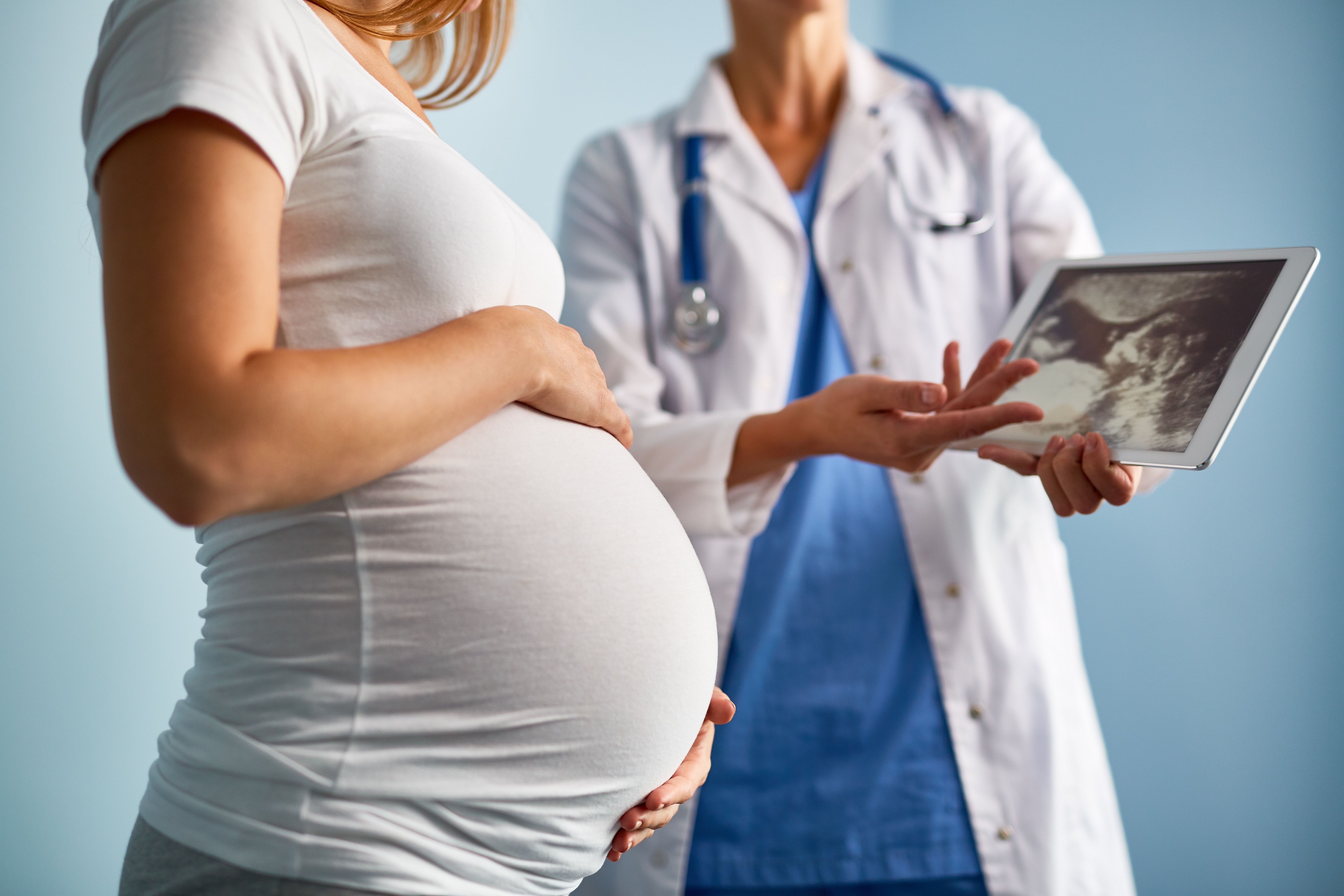- Bone Health
- Immunology
- Hematology
- Respiratory
- Dermatology
- Diabetes
- Gastroenterology
- Neurology
- Oncology
- Ophthalmology
- Rare Disease
- Rheumatology
Review Identifies Gaps in Evidence on Biosimilar DMARD Use During Pregnancy
A review of the safety of biosimilar DMARDs during pregnancy reveals critical evidence gaps and the need for informed clinical guidance.
As biosimilar disease-modifying antirheumatic drugs (DMARDs) become increasingly integrated into autoimmune disease management, questions remain about their safety during pregnancy. A recent scoping review published in Rheumatology International examined the existing literature on biosimilar DMARD exposure in pregnancy and revealed significant evidence gaps that limit clinicians’ ability to provide data-driven guidance for individuals of childbearing potential.1
A review of the safety of biosimilar DMARDs during pregnancy reveals critical evidence gaps and the need for informed clinical guidance. | Image credit: pressmaster - stock.adobe.com

Biologic DMARDs have transformed treatment for autoimmune and autoinflammatory conditions such as rheumatoid arthritis, inflammatory bowel disease, and ankylosing spondylitis by controlling inflammation, reducing flares, and slowing disease progression. However, their high cost—averaging $10,000 to $30,000 annually per person—has led to the development and adoption of biosimilars, which offer similar efficacy and safety at lower prices.
Despite this, biosimilars are not automatically deemed equivalent to their reference biologics in all clinical situations. Their use during pregnancy remains an area of uncertainty, with no specific recommendations included in the most recent American College of Rheumatology (ACR) or European Alliance of Associations for Rheumatology (EULAR) reproductive health guidelines.2,3
The scoping review sought to address this knowledge gap by mapping and synthesizing available data on the reproductive health outcomes associated with biosimilar DMARD exposure during pregnancy.1 Researchers searched 3 major databases—Embase, MEDLINE, and CENTRAL—through June 2025 for observational studies examining biosimilar DMARD exposure among mothers during pregnancy, fathers prior to conception, or fetuses in utero. Study characteristics, exposure timing, and pregnancy outcomes were extracted and analyzed using a newly developed Reproductive Health Outcomes Reporting Framework designed to improve standardization in perinatal research.
Out of more than 7800 records screened, only 6 studies met inclusion criteria. These consisted of 5 descriptive studies—2 case reports, 1 case series, and 2 cross-sectional studies—and 1 analytical cohort study. Together, the studies described 63 mothers with autoimmune diseases who were treated with biosimilar DMARDs, primarily tumor necrosis factor inhibitors such as infliximab, etanercept, and adalimumab. One study examined a biosimilar of the B-cell inhibitor rituximab.
The studies collectively reported 24 reproductive outcomes, including 12 fetal or neonatal outcomes, 5 maternal outcomes, and 4 outcomes that involved both mother and infant. No studies evaluated paternal exposure. In most cases, women who continued biosimilar therapy through pregnancy experienced favorable outcomes, including live births and healthy infants.
For instance, 1 study involving 20 women treated with the infliximab biosimilar CT-P13 reported 19 live births (95%), with a mean gestational age of 39 weeks and 1 congenital anomaly (cleft palate). Another study of 18 women exposed to biosimilars of infliximab, adalimumab, or etanercept found that all pregnancies resulted in live births, with no major congenital anomalies reported. About half of the women in that study experienced disease flares during or shortly after pregnancy.
The only analytical study compared pregnancy outcomes among patients treated with infliximab biosimilars vs the originator product. No significant differences were found for neonatal intensive care unit admissions (OR, 1.00; 95% CI, 0.11-9.05) or congenital malformations (OR, 1.38; 95% CI, 0.63-3.00). However, wide CIs indicated limited precision due to small sample sizes.
Although findings across the available studies were generally reassuring, the evidence base was too small and methodologically inconsistent to draw firm conclusions. The review identified notable variability in how studies reported biosimilar exposure and pregnancy outcomes. Many did not specify biosimilar brand names or clarify whether treatment was initiated before or during pregnancy. Information on maternal disease activity—an important predictor of adverse outcomes—was often incomplete or omitted.
The review’s authors proposed the use of a standardized framework for reporting reproductive health outcomes in future studies, categorizing outcomes by who experienced them (mother, fetus, or both) and when they occurred (before, during, or after pregnancy).
“The current literature is insufficient to inform evidence-based guidance on biosimilar DMARD use in pregnancy,” the authors stated, emphasizing that more robust analytical studies are needed to establish causal relationships between biosimilar exposure and pregnancy outcomes.
These evidence gaps have important implications for clinical practice, particularly as many jurisdictions expand mandatory biosimilar switching programs to reduce health care costs. In the absence of definitive data, clinicians must rely on shared decision-making and individualized care planning to guide treatment choices for patients who are pregnant or planning pregnancy. Maintaining disease control remains critical, as uncontrolled autoimmune activity is itself associated with increased risk of miscarriage, preterm birth, and low birth weight.
Until stronger evidence emerges, experts recommend that patients and clinicians engage in early prepregnancy counseling to balance the benefits of disease control with the limited data available on biosimilar safety. Continued postmarket surveillance and pregnancy registries will also be key to expanding the evidence base.
The review concluded that while biosimilars have helped improve access and affordability in autoimmune disease care, the lack of comprehensive perinatal data represents a significant gap in ensuring safe and informed treatment decisions.
References
- Cheng V, Amiri N, Cheng V, et al. Scoping review of biosimilar disease-modifying antirheumatic drugs in pregnancy: evidence gaps and proposed outcome reporting framework. Rheumatol Int. 2025;45(10):241. doi:10.1007/s00296-025-05968-3
- Rüegg L, Pluma A, Hamroun S, et al. EULAR recommendations for use of antirheumatic drugs in reproduction, pregnancy, and lactation: 2024 update. Ann Rheum Dis. 2025;84(6):910-926. doi:10.1016/j.ard.2025.02.023
- Sammaritano LR, Bermas BL, Chakravarty EE, et al. 2020 American College of Rheumatology guideline for the management of reproductive health in rheumatic and musculoskeletal diseases. Arthritis Care Res. 2022;72(4):461-488. doi:10.1002/acr.24130
Newsletter
Where clinical, regulatory, and economic perspectives converge—sign up for Center for Biosimilars® emails to get expert insights on emerging treatment paradigms, biosimilar policy, and real-world outcomes that shape patient care.
